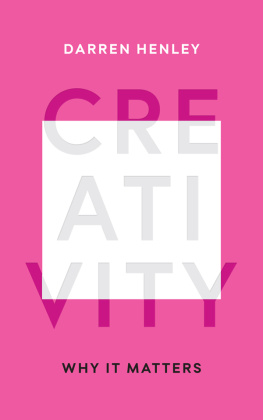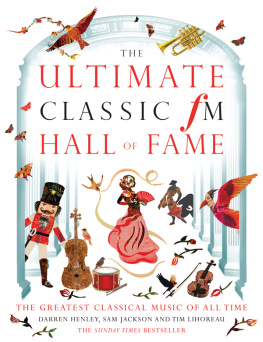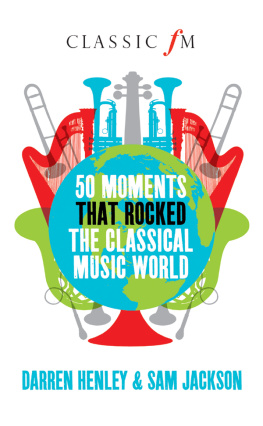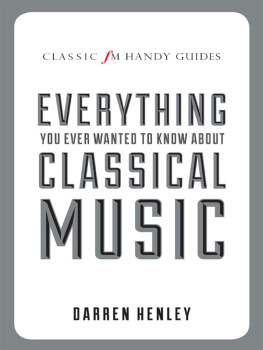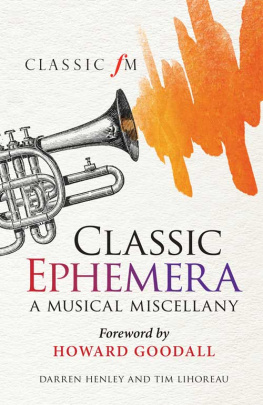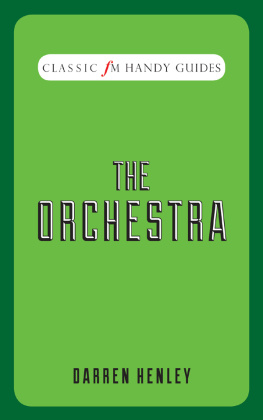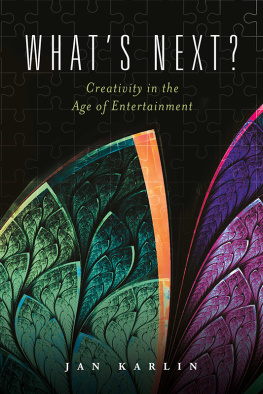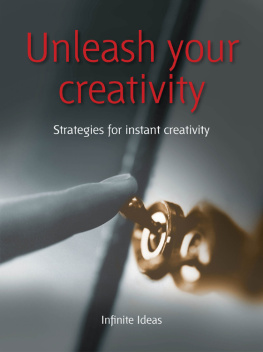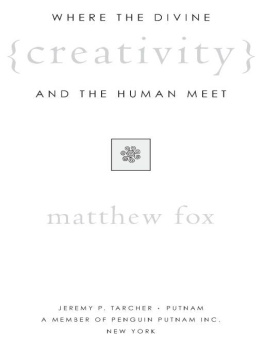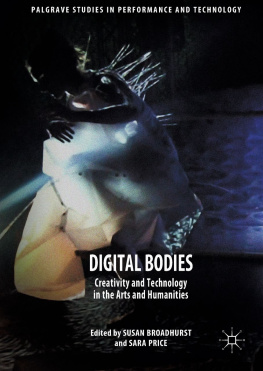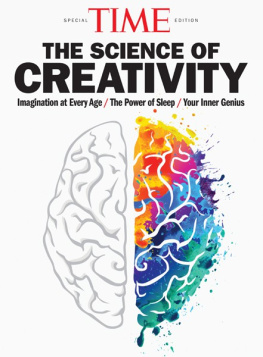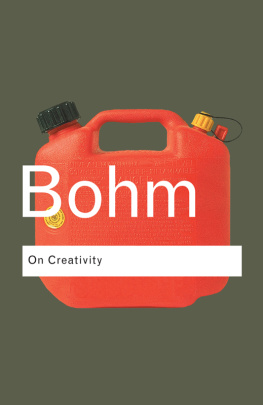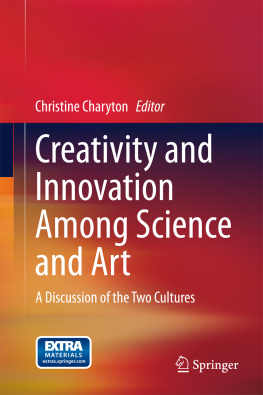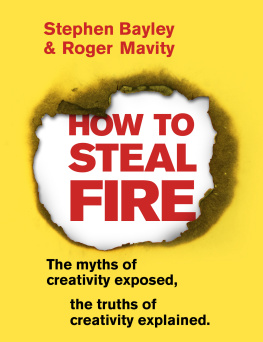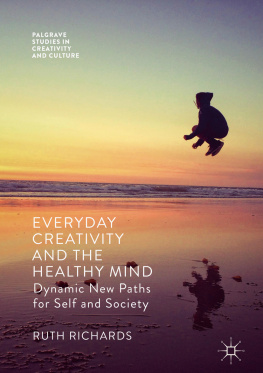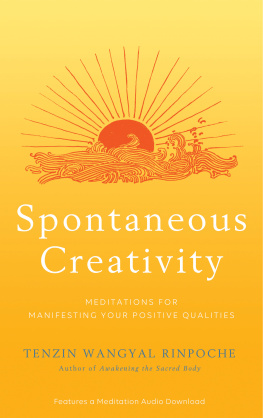Contents
Guide


You cant use up creativity. The more you use, the more you have.
MAYA ANGELOU
CONTENTS
A WORD ABOUT
THIS BOOK
Imagine a world without creativity.
Nothing new would happen; there would be no original ideas; no new inventions or advances in science and medicine; no new products or services; no new books, shows, music or art; no solutions to new problems.
We would be frozen in a hellish form of suspended animation where our only reference points were what had happened in the past and what was happening right now in the present. There would be no hope of any difference or change in the future.
It is shocking, then, that we so often take creativity for granted, consistently undervaluing the positive impact that it can have on our lives both as individuals and as a society. This book is my attempt to explain why creativity matters to our economy, our communities and our everyday lives, and why it should be given much more emphasis in our education system.
It is not an official Arts Council England publication; these are my personal opinions, but it is inevitable that my views are constantly shaped by my experiences at the Arts Council. I see the power of creativity every day; its the catalytic ingredient that helps us to effect positive change in the world around us. We should do more to understand it, to talk about it, and to cherish the conditions that enable it to flourish. This is my case for creativity.
INTRODUCTION
Before dawn on a July morning in 2016, 3,200 people of all shapes and sizes assembled in the ancient port of Hull, stripped naked, painted themselves blue and paraded through the deserted city, sometimes lying down in the street like beached whales, sometimes posing in lines like frozen waves, and sometimes filling the citys squares like an incoming flood. A man stood on a stepladder shouting at them and taking photographs. They were clearly having a good if chilly time; but there was a prevailing air of serious intent, and the whole thing had some kind of underlying plan.
What on earth were they doing? And what is the relationship between this weird, woad-coloured event and our hopes for a better and brighter future?
It was of course a work of art. One of those extravagances that serve no obvious purpose yet can be mesmerising to watch, leave a lasting mark on participants and set in train a series of far-reaching consequences.
This work of art was Sea of Hull, created by Spencer Tunick for the Ferens Art Gallery in the lead-up to Hulls year as UK City of Culture in 2017. Using people like water, he marked the old hidden waterways of the port, recalling its past. The work had the liberating feeling of a tide released, and an urgent sense of a world that might yet come to pass should the sea ever reclaim Hull. But above all it was human; it had poignancy, defiance and hope.
Those who took part came from all walks of life and most had not had much to do with art of any kind before, never mind taken part in anything quite so extraordinary. Many have since talked about the sense of significance the project gave them. How powerful it felt to overcome their reservations, to share their vulnerability and their humanity and to be collectively part of something. To do something different; something absurd, beautiful, passionate and historic.
In a city that had spent decades not always getting the luckiest breaks, and where people were fed up of being told what to do and what to consume, those cold blue humans had begun to feel the revivifying power of creativity.
As I write, its still early days in Hulls resurgence, but I can say with some certainty that Sea of Hull was the curtain-raiser to a hugely beneficial twelve months. To my mind, Hulls year as UK City of Culture was an unmitigated, rip-roaring, awe-inspiring, life-enhancing success. Its a city that I know and love, having lived there for three years as a student in the early 1990s.
Hull has changed for the better and its a real living, breathing case study of why creativity matters. Its year in the spotlight has managed to change perceptions about the city locally, nationally and internationally. It has boosted the economy, attracting visitors, investment and jobs. It has broken down barriers between the citys communities. And it has had a direct impact on individual citizens with more than 95 per cent of Hull residents seeing or participating in one of the many events that took place during the year.
Like Sea of Hull, creativity flowed into peoples lives and changed them.
WHAT DO WE MEAN BY CREATIVITY?
Creativity isnt an easy concept to define. Some might describe it as the realisation of something entirely unique; some would say that it is an aspect of character, and that you either have it or you dont; and others would give it a supporting role in other activities such as making a presentation in a business meeting, playing the piano well or being able to make a scale model of the Houses of Parliament out of matches.
We may well disagree about what creativity means as a process, but there is more consensus on what its results look like. For example, we think of ourselves as being a creative nation, because across the arts, technology, medicine, science, engineering and manufacturing sectors, we have produced innovative ideas that have challenged existing paradigms and moved us forward.
The force of creativity, coupled with industrial might, has long underpinned the wealth, influence and sense of worth not only of our nation, but also of communities and individuals. Ive seen this for myself during a non-stop journey travelling the length and breadth of England over the past few years, witnessing the power of creativity in all its forms. In my first eighteen months as chief executive of Arts Council England, I encountered cultural activities and organisations in 157 different villages, towns and cities across England and although Ive now stopped counting the different places, I havent stopped travelling, observing and learning since.
I dont for one minute think that creativity is the sole property of the artistic and cultural world. When I think of creative people, I think of individuals with creativity at the heart of the work that they do and that applies to scientists, engineers and business people just as much as it does to artists. They use their imaginations; they innovate. They believe that creativity matters in their work. The anthropologist Agustn Fuentes argues that theres just as much creativity going on in the science laboratory full of test tubes and Bunsen burners as there is on the stage of a concert hall packed with violins and trumpets:
Its not just artists who believe that creativity matters in their work.
Science emerges from an especially creative problem-solving system that can lead to the augmentation of existing solutions.
Professor Roger Kneebone is the co-director of the Centre for Performance Science based jointly at the Royal College of Music and Imperial College London. The centres research is aimed at tackling major challenges of performance across the arts, education, medicine, engineering, natural sciences, business and sport. A trauma surgeon by training, Rogers research brings artists and scientists together to come up with new ideas and new ways of working. The expertise of the scientists and medics informs the creativity of the artists; and the expertise of the artists helps the scientists and medics to think and act more creatively.

